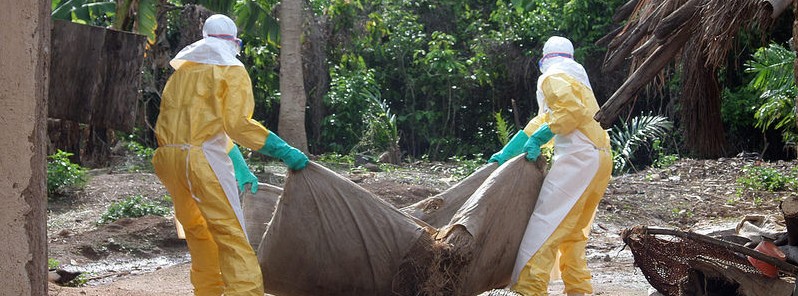Ebola-like Marburg virus disease presence declared in Uganda

On October 19, 2017, Uganda's Minister of Health has officially declared the presence of Marburg virus disease, one of the most deadly known pathogens, in the eastern part of the country.
The statement comes after one confirmed case was detected and died in Kapchorwa hospital in Kween district, bordering Kenya. While another case was suspected yesterday, latest news confirms two deaths. According to the AFP, one individual was a male hunter who died on September 25 and the second his 50-year-old sister who died on October 11.
"The second victim had taken care of her brother during his sickness and burial preparation rituals when we suspect she contracted the disease," Health Minister Ruth Achieng said.
The two are the first recorded cases of Marburg in Kween district.
"At the moment we don't know if there are other people apart from the dead who have contracted the disease because the health experts are still investigating in addition to sensitizing the population about the dangers of Marburg and we call for public vigilance," Uganda's health ministry permanent secretary, Dr. Diana Atwine said.
The government immediately resumed the National Task Force, in which humanitarian donors are included, and dispatched a rapid response team to the district for a full investigation. This operation is closely followed by the Centre for Disease Control (CDC), sub-branch in Uganda.
The response capacity in the country is solid, DG ECHO reports. The MoH-UN Early Warning, Alert and Response System (EWARS) is strong in Uganda and the presence of Epicentre (MSF scientific unit) is also an asset.
DG ECHO is part of the task force and will continue closely monitoring the situation.
The Marburg Virus Disease is a rare but severe type of Viral Hemorrhagic Fever which affects both humans and non-human primates like monkeys, baboons. The reservoir host of Marburg virus is the African fruit bat.
In Uganda, there have been 3 outbreaks recorded since 2007, the last one in 2014. The one in 2012 killed 10 people and the one in 2014 one.
Marburg virus disease
According to WHO, the Marburg virus disease (MVD) (formerly known as Marburg haemorrhagic fever) was first identified in 1967 during epidemics in Marburg and Frankfurt in Germany and Belgrade in the former Yugoslavia from importation of infected monkeys from Uganda. MVD is a severe and highly fatal disease caused by a virus from the same family as the one that causes Ebola virus disease. These viruses are among the most virulent pathogens known to infect humans. Both diseases are rare, but have a capacity to cause dramatic outbreaks with high fatality.
Illness caused by Marburg virus begins abruptly, with a severe headache and severe malaise. Many patients develop severe haemorrhagic manifestations between days 5 and 7, and fatal cases usually have some form of bleeding, often from multiple sites. Case fatality rates have varied greatly, from 25% in the initial laboratory-associated outbreak in 1967, to more than 80% in the Democratic Republic of Congo from 1998-2000 and the outbreak in Angola in 2005.
The Marburg virus is transmitted by direct contact with the blood, body fluids and tissues of infected persons. Transmission of the Marburg virus also occurred by handling ill or dead infected wild animals (monkeys, fruit bats). The predominant treatment is general supportive therapy.
Featured image credit: DG ECHO

Commenting rules and guidelines
We value the thoughts and opinions of our readers and welcome healthy discussions on our website. In order to maintain a respectful and positive community, we ask that all commenters follow these rules.